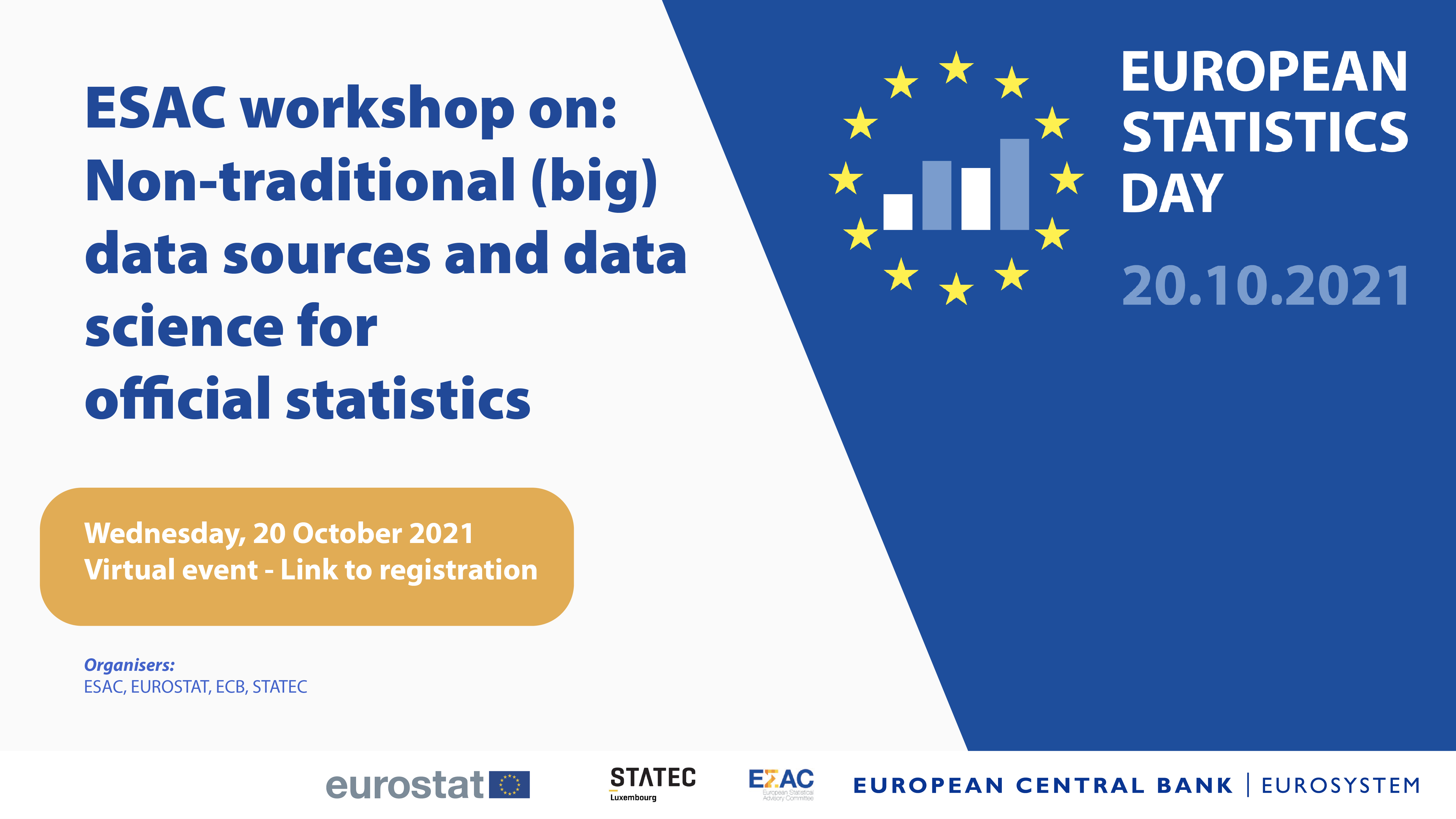On the 20th October, the European Statistical Advisory Committee (ESAC), in collaboration with Eurostat, the European Central Bank (ECB) and the Luxembourg Statistical Office (STATEC), is organising a workshop on non-traditional (big) data sources and data science for official statistics. This event marks the European Statistics Day and explores challenges and opportunities relating to diverse non-traditional data sources for official statistics, including crowd-sourced, remotely sensed and big data for Official Statistics.
This workshop aims to spotlight the topic of digital transformation in the context of the Conference on the Future of Europe (COFE). Data form an important part of the EU’s digital transformation. Big data refers to collected datasets, which are so large and complex that they require whole new techniques. These techniques generally collect data automatically and use new methodologies to analyse data and discover patterns for knowledge extraction, facilitating rapid decision-making based on statistical and machine learning tools. The timeliness of analysis is an additional feature of these methods.
The workshop is focusing mainly on new participatory approaches to collecting data, applying data science techniques and producing statistical information with the help of a large group of people (crowd-sourced data). It is also looking at methods for collecting georeferenced data using IoT sensors and earth observation (satellite imagery and remote sensing data) and techniques based on the datafication of human activities, including computer-mediated communication (text mining and natural language analysis) and financial transactions (credit cards).
These data and data science methods are mighty enablers, as they allow for:
- companies to innovate by analysing people’s wants and needs;
- nations to control emissions and waste;
- medical professionals to develop better diagnostics, treatments and drugs;
- farmers to make better use of natural resources;
- public services to increase efficiency and effectiveness;
- road operators to mitigate traffic jams;
- providers to tailor financial services to their customers and distributors.
The conclusions of the workshop will be made available on the COFE Platform and serve as input into the work of Conference Plenary.
For more information:
- Workshop agenda with the link to register
- ESAC celebrates European Statistics Day – dedicated page
- Conference on the Future of Europe website
To contact us, please visit our User Support page.
For press queries, please contact our Media Support.


